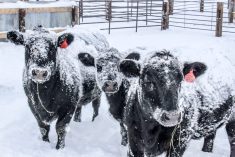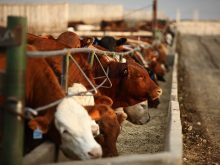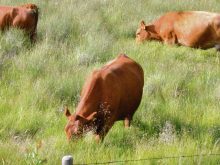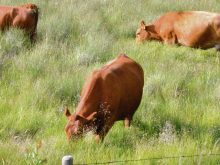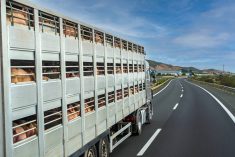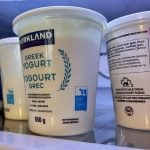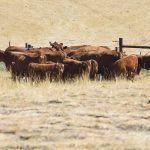The mystery of how six Prairie cattle caught a Mexican strain of bovine tuberculosis (TB) is now expected to remain a mystery indefinitely.
The Canadian Food Inspection Agency on Monday announced quarantines have been lifted from all Prairie cattle operations tested during its probe of a bovine TB outbreak beginning in the fall of 2016.
The agency’s probe followed the discovery of a southeastern Alberta cow that tested positive for bovine TB when it was slaughtered at a U.S. packing plant in late September 2016. Five more cattle from the same farming operation later tested positive for the disease.
Read Also
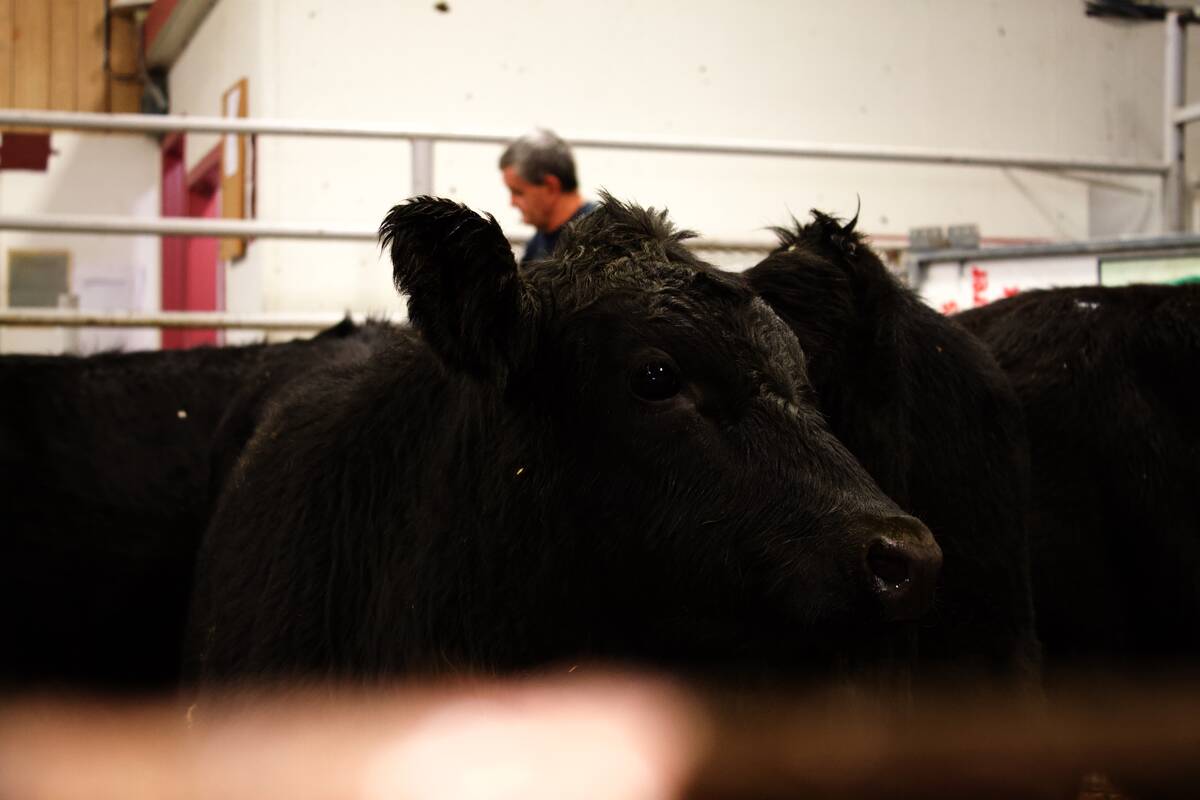
U.S. livestock: Cattle rally, hogs rise
Chicago cattle rallied on Monday. Lean hogs also rose. Most-active April live cattle futures closed at 239.525 cents a pound,…
About 30,000 animals across 79 “trace-out” herds and 71 “trace-in” herds in the three Prairie provinces were tested. From those, about 11,500 cattle were ordered destroyed.
All that said, no further cases were discovered, and no source of infection has been identified for the six TB-positive cattle, the agency said Monday.
“Trace-out” denotes herds that got animals from the infected herd, while “trace-in” refers to herds that sent animals to the infected herd.
CFIA expects to post an investigation summary report on its web site later this spring, and to declare the investigation officially closed once the final lab culture test results are completed.
Producers whose herds were depopulated, and whose premises have gone through cleaning and disinfection, have restocked their herds, the agency said.
Two rounds of testing will be done on the restocked herds to verify those animals are TB-free, the agency said. One round of testing has just been completed and the second will take place this fall. These herds are not under quarantine in the meantime.
“While the investigation will not be officially closed until final laboratory culture results are received later this spring, this is a positive step forward for Canada’s cattle industry,” federal Agriculture Minister Lawrence MacAulay said in a statement Monday.
MacAulay hailed the affected producers and cattle industry associations for their co-operation and their “key role” in the investigation, which, he noted, has “allowed Canada to retain its bovine TB-free status with no disruption in access to international markets.”
Producers whose herds were ordered destroyed have received $39 million in federal compensation. Income tax deferrals were also put in place allowing them to defer portions of the lump-sum compensation they received in 2016 and 2017 into the 2018, 2019 and 2020 tax years.
A Canada-Alberta program budgeted up to $16.7 million more to cover “extraordinary quarantine costs,” MacAulay added.
Costs covered under that program included feeding and water infrastructure, feed for animals, transportation, cleaning and disinfection and “interest costs on loans due to the circumstances.”
CFIA said Monday it is still working with the provinces to ensure any risks tied to TB in wildlife are included in its investigation. That work will include “active surveillance” this year on elk in southeastern Alberta, the agency said.
According to Alberta Beef Producers, “active surveillance” of wild elk means a proportion of the elk harvested by hunters will be tested for TB regardless of whether any unusual lesions are spotted.
During the 2016-17 hunting season, ABP noted, no evidence of bovine TB was seen in any of the 1,258 elk harvested in the Suffield area of southeastern Alberta.
Furthermore, CFIA in late 2016 found the strain of Mycobacterium bovis in the six TB-positive cattle wasn’t the same as any strains previously detected in Canadian domestic animals, wildlife or people.
Rather, the agency said, the M. bovis strain was “closely related” to a strain originating from cattle in central Mexico in 1997. — AGCanada.com Network



